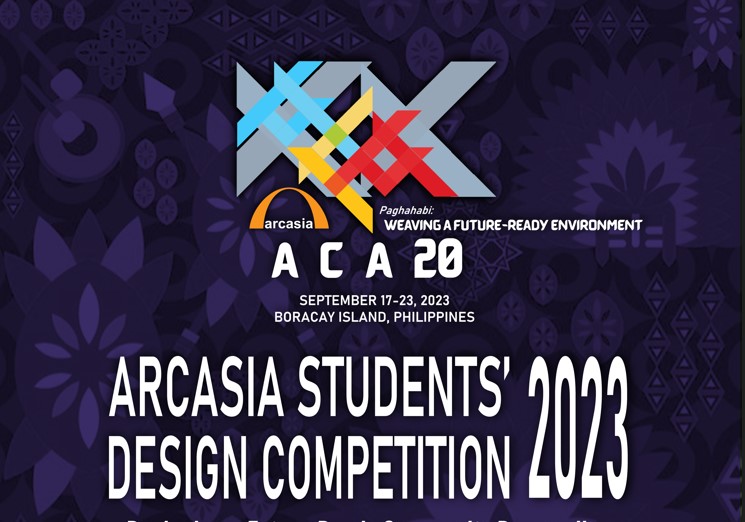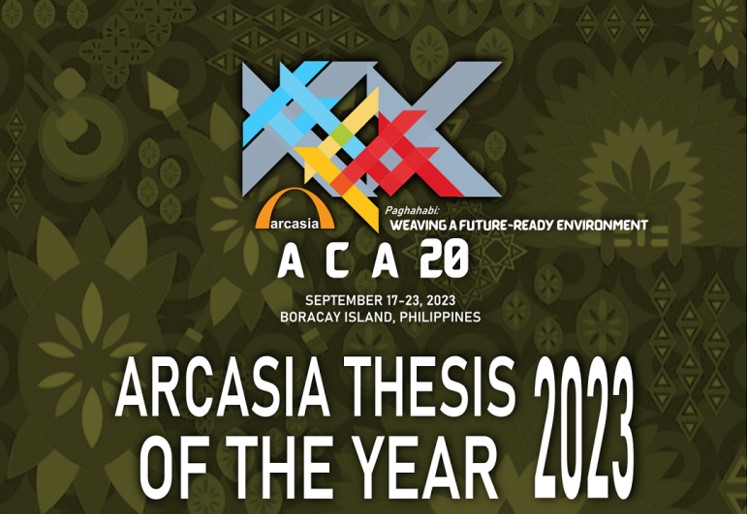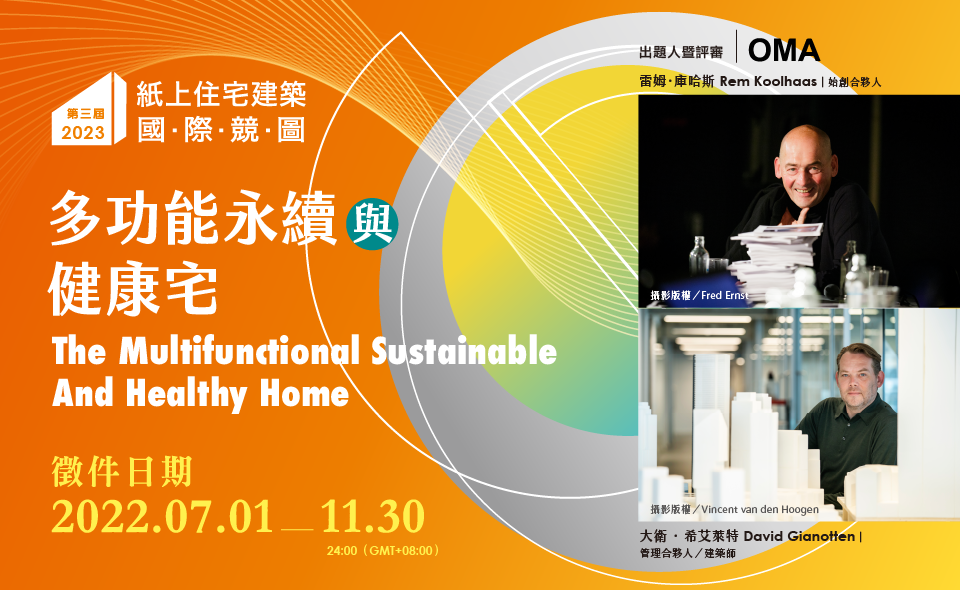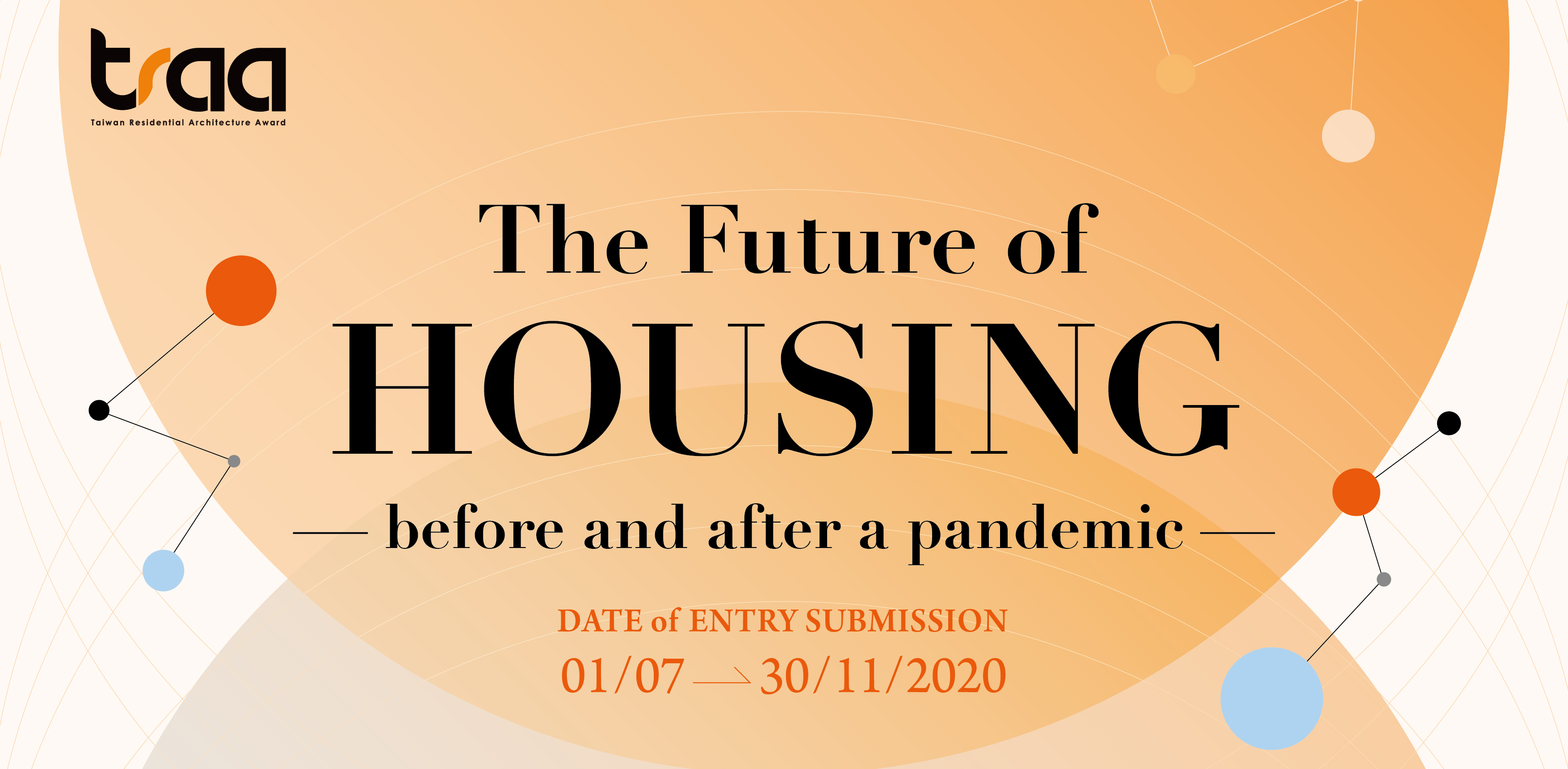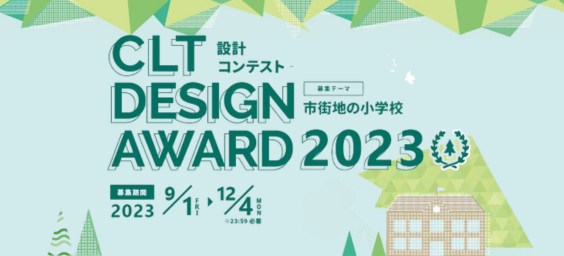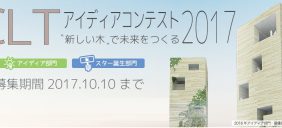ARCASIA Student’s Design Competition 2023 Announcement
- コンペの概要
【Objective】
The Students’ Architectural Design Competition aims to provide an arena for students from ARCASIA member Institutes to participate in ARCASIA activities. It is an opportunity for students from different cultures to exchange and share ideas on a particular design issue that is raised by ARCASIA every year.
【Competition Theme】
Designing a Future-Ready Community Responding to the Most Challenging Social Condition
As the world constantly faces challenges brought by population surges, climate change, and economic and health issues, its effects are mainly felt in the smallest unit of a city – the community.
In fact, the COVID-19 pandemic has viciously exposed the fragility of different countries’ health and social services systems, thus intensifying the need to resolve long-term problems which calls for a more top-down and multi-sectoral approach to sustainable development.
The Asian Development Bank (ADB) responds to several development issues in the Asia Pacific region: agriculture and food security, education, climate change, risk management, finance, fragile and conflict-affected situations (FCAS), gender equality, governance, and health to name a few. ADB presents mitigation and adaptation measures to combat multiple social, environmental, and economic key issues that inhibit sustainable development. Below are brief descriptions of the adverse effects of each key issue. These effects are primarily encountered by communities as consequences of neglect, the inaction of authorities, and cultural norms embedded in the socio-political system of different countries.
Environmental
Climate-related disasters lead to agricultural losses and multiple adverse impacts on food production and supply. Scarcity of food upon increasing demand affects food price inflation which imbalances consumption and impedes further the marginalized to be freed of poverty. The Covid-19 pandemic yielded an increase in undernourished people in Asia due to hunger and malnutrition despite growing prosperity. Climate change also affects biodiversity and natural capital, supporting economic growth and people’s lives.
According to International Energy Agency, World Energy Outlook 2020, around 150 million people in Asia and the Pacific still lack access to electricity, while many more cook using unhealthy, polluting fuels, curbing economic growth and social development.
More than half of the total carbon emissions in the world come from Asia and the Pacific region. Hence, a transition to clean energy is key to tackling climate change.
Social
Data from 19 countries in Asia and the Pacific by Global Internal Displacement Database 2020 shows that there are 6.4 million people who were displaced because of conflict and violence. These IDPs or internally displaced persons need context-specific tailored support for fragile and conflict areas situations (FCAS) and small island developing states (SIDS) to help build resilient and stable developed communities even they are in the most vulnerable environments.
Unequal access to education is still a lingering problem in the Asia-Pacific region. Children who are unable to go to school, even in countries where enrollment levels are high, tend to be from the poorest and most disadvantaged in society. Gender bias in education is still evident wherein girls and women are often at a disadvantage in most developing member countries (DMC)s. Other marginalized from mainstream education in many countries include young people in rural areas, those from ethnic, religious, or linguistic minorities, refugees, and those living with disabilities.
Gender equality needs to be pursued because it is critical for sustained economic growth, faster poverty reduction, and inclusive development. Investments in women are missed opportunities to correct gender disparities and to capture and unleash women’s economic and human capital potential.
Economic
Asia’s infrastructure needs as economies expand and climate change impacts, remain a huge challenge and must include private and public sectors. ADB Data for Infrastructure Investment Needs, 2016-2030 tells us that Asia needs an investment of $ 1.7 trillion per year in infrastructure to maintain its growth momentum, tackle poverty, and respond to climate change. Investment in power infrastructure leads to the top priority need at $ 14.7 T, followed by Transportation, at $ 8.3 T, Telecommunications, at $ 2.3 T, and Water and Sanitation, at $0.8 T.
Public-private partnerships can help address Asia and the Pacific’s huge infrastructure deficit and boost development. It remains a major challenge that the region lacks quality bankable projects to attract private capital for infrastructure development. PPPs can be used to finance and run not only traditional infrastructure, but also the transport sector, education, health, and other social sectors.
The UN Sustainable Development Goals (SDGs)
Keeping the future in mind, the challenge of this competition is to integrate innovative design approaches to social, economic, and environmental concerns that directly influence the quality of life in a community. The main problem should be anchored on an arising social condition in the designer’s selected community. The design should possess sustainable responses to a circular economy, people-centeredness, safety, resilience, inclusivity, and heritage preservation.
The designer must align his/her project framework with the United Nations’ Sustainable Development Goals (SDGs). He/She must select the most applicable SDGs in his/her decided problem. Taking the latest reports or stats as baseline reference from each SDG, the designer must undergo desk research on the specific context of the local region where his/her chosen community belongs.
The design proposal must clearly present how his/her architecture responds to the problems presented and how it could be pivotal to the sustainable growth of the community.
Site Criteria:
• The site should be catering to at least 3,000 population or bigger.
• It should have a conspicuous social condition that needs to be addressed, and architecture can be a vital solution.
• It should be a place that has the potential for physical, environmental, economic, and social growth.References:
- 賞
-
Awards
ONE GOLD AWARD
Gold Medal and Certificate
ONE SILVER AWARD
Silver Medal and Certificate
THREE BRONZE AWARDS
Bronze Medal and Certificate (all three finalists)
募集要項
- コンペの募集内容
- Entry Eligibility
Any current full-time student studying in an Undergraduate Architecture program accredited/ recognized by respective National Institute of Architects of ARCASIA Member Institutes.
Schedule
May 20, 2023: Announcement of Competition
July 10, 2023: Submission closes (to Institutes)
July 24, 2023: Submission of 3 Finalists from Institutes
August 18, 2023: Results of Winners
Sept. 18, 2023: Awards Ceremony
Individual/Team Submission
Individual or team submissions are accepted. No limitation on the number of team members. However, Students are only allowed for one submission either on an individual or team basis.
Deliverables
One file containing an A1-sized layout (594 mm x 841 mm) in landscape format, including (but not limited to) the following:
Location plan/ Site plan/ Block plan/ Building plans at appropriate scale;
Minimum one cross-section and /or elevations at appropriate scale;
Diagram/ Sketches highlighting the design ideas and features;
Photomontages, Perspectives, and or other illustrations that can illustrate the ideas and design concepts;
Animation is not accepted.
Design Statement of 500 words maximum (font size: 12) in PDF format to explain the overall proposal with the proposal title.
Duly completed and signed Entry Form in PDF format.
Anonymity and Confidentiality of Entries
No identification marks shall appear on the graphic layouts and the Design Statement. The participant(s) shall keep his/her entry confidential and take necessary steps to ensure it is not disclosed to any third parties throughout the competition until the public announcement of the results.
Intellectual Property Rights
Intellectual Property Rights belong to the author(s), but upon submitting an entry to the category, the participant declares, warrants, agrees, and undertakes that the submission (Intellectual Property Rights inclusive) would be used for the promotion/ publication of the event.
Assessment Guidelines
The selected entries sent from all the NIAs of ARCASIA will be judged by the broad assessment guidelines by the Jurors. The decision of the Jury Panel shall be final and binding on all parties concerned and decisions cannot be appealed against. Participants do not have the right to request access to the Jurors’ comments or records on the adjudication.
Awards
ONE GOLD AWARD
Gold Medal and Certificate
ONE SILVER AWARD
Silver Medal and Certificate
THREE BRONZE AWARDS
Bronze Medal and Certificate (all three finalists)
Exhibition and Publication of Entries
The organizer is entitled to display or exhibit the entries or any part thereof on any date and in any venue and publish the reports of the category events together with any selected entries.
Language
All entries shall be in English.
Submission and Enquiry
All entries shall proceed via email to their respective National Institutes of Architects by July 10, 2023.
In case of any further inquiries, please contact ARCASIA Students Architectural Design Competition 2023 Secretariat at aca20arcasia@gmail.com
Please follow the Students Design Competition link on the ARCASIA website (http://www.arcasia.org/arcasia-student-competition) and ACAE Social Media Handle for the latest information and updates regarding the Competition. Refer to the links below:
ACAE Facebook:
http://www.facebook.com/arcasia.acae
ACAE Instagram:
https://www.instagram.com/acae_members/
- コンペの募集期間
- 2023年05月20日(土) から 2023年07月10日(月) まで
- コンペの日程
- Schedule
May 20, 2023: Announcement of Competition
July 10, 2023: Submission closes (to Institutes)
July 24, 2023: Submission of 3 Finalists from Institutes
August 18, 2023: Results of Winners
Sept. 18, 2023: Awards Ceremony
- 参加資格
- Any current full-time student studying in an Undergraduate Architecture program accredited/ recognized by respective National Institute of Architects of ARCASIA Member Institutes.
- 著作権の取扱について
- 提出物一式のデータをメールにてJIA本部事務局(jiacontact@jia.or.jp) までお送りください。(パネルを郵送で送らないようにお願いいたします。)
- 主催
- Architects Regional Council Asia (ARCASIA)
- お問い合わせ先
- 公益社団法人日本建築家協会 本部事務局(jiacontact@jia.or.jp)
- SNS公式アカウント
-
 @arcasia.acae
(ACAE Facebook)
@arcasia.acae
(ACAE Facebook)
-
 @acae_members
(ACAE Instagram)
@acae_members
(ACAE Instagram)
- 公式ホームページ
-
アルカジア学生コンペ2023 募集のお知らせ – JIA国際委員会 | The Japan Institute of Architects (JIA)
URL: https://jia-intl.org/2023-05-22-2/
